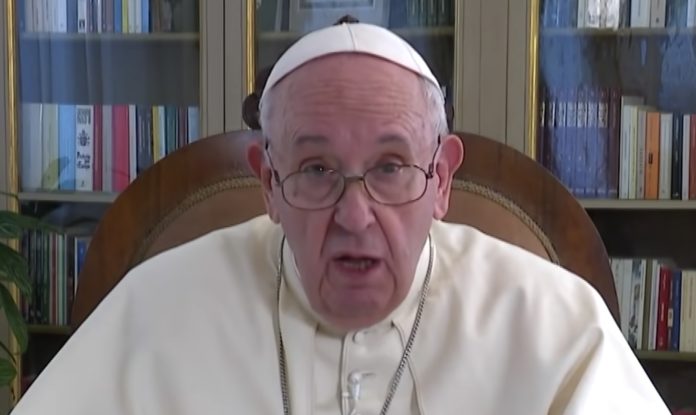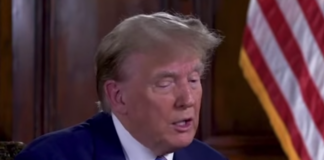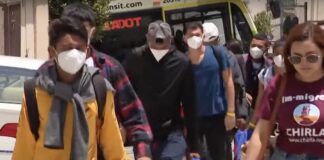OPINION | This article contains opinion. This site is licensed to publish this content.
Pope Francis delivered remarks while appearing at the U.N. Climate Conference.
The pope compared the effects of climate change to those of World War II.
“The wounds inflicted on our human family by the Covid-19 pandemic and the phenomenon of climate change are comparable to those resulting from a global conflict,” the pope said.
“Today, as in the aftermath of the Second World War, the international community as a whole needs to set as a priority the implementation of collegial, solidary and farsighted actions,” the pontiff continued.
In his message, the pope supported “the goals set by the Paris Agreement” in 2015. There is “no alternative” to battling climate change, he added.
This message was read aloud by the Vatican Secretary of State Cardinal Pietro Parolin.
Francis returned to the same analogy later in his remarks.
He said that “in the near future, environmental migrants will be more numerous than refugees from war and conflicts.”
The pope told nations to sacrifice “greater human, financial and technological resources to mitigating the negative effects of climate change.”
In conclusion, the pope pressed wealthier nations to “take a leading role in the areas of climate finance, decarbonization in the economic system and in people’s lives, the promotion of a circular economy, providing support to more vulnerable countries.”
The pope argued that there is “no denying” that some nations have a growing “ecological debt” to poor nations because of their “disproportionate use” of natural resources.
“The developed countries ought to help pay the ecological debt by significantly limiting their consumption of nonrenewable energy and by assisting poorer countries to support policies and programs of sustainable development,” he said.






